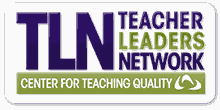Another teacher came to talk to me about the problems she has had with cheating in her classroom with our group of 7th graders this year. It was a timely conversation, echoing one I had yesterday with another teacher.
I think we have created a culture among students where they do not think sharing or giving answers is cheating.
The social aspect of learning has been at the forefront of education recently. We encourage students to talk it out; we establish group learning/projects as the norm; we seat students in closer proximity to each other trying to facilitate these protocols.
Have we gone too far? Are we creating students who cannot think independently? Where is the line between working together and cheating?
As a general rule, in my classes, students are allowed to confer when working on independent work. The only time I usually implement 'silence' in during a final assessment/test situation. I find students better able to explain to each other the problems they encounter, and it is obviously easier for me to not have to help each individual student. I know the students who are "teaching" are cementing the learning in their minds more securely, and like to think both parties are gaining from the experience.
However, I am begining to question my philosophy. Are the slackers just coasting along, stealing answers from the others? Are they really learning?
I find it more and more difficult to keep students quiet during an assessment situation. They are so intune to talking to each other, they seem to struggle to silence themselves. Is that bad? If they are learning in a social situation, should they also be assessed in that situation? If so, how will I ever know that Student A really does get it?
Students seem unable to differentiate between what is actually cheating and what is not. They think letting someone else copy their answer is 'helping' and showing them how to work a problem is just 'assisting'.
How do I learn to draw the learn for them, and for me? How can I ever be certain each and every child is grasping the content we cover if I am not assessing accurately?
Does it all matter in the scheme of life?
Wednesday, February 04, 2009
Subscribe to:
Post Comments (Atom)









4 comments:
this is a perpetual problem.
My current view is that we have to go the whole way. We have to do assessments differently.
We change our pedagogy to what we think better fits the dynamics of social cognition. But we still assess in the old ways that do not take social cognition into account.
I don't know how to assess differently yet, but I sure want to learn
When it comes to letting my 8th graders work together, I spell it out for them.
I tell them that discussing their ideas with their own papers in front of them and their pencils down is not cheating. Having someone else's paper on their desk and reading exactly what they've written and/or writing down exactly what they've written is CHEATING. And if I catch them doing it, they will recieve a 0 on the assignment and, depending on the situation, a phone call home.
I do enforce a little bit of silent, individual worktime when I really want to see if they "get it", but I try to work some talk-time into every day's lesson.
I think it's important to balance traditional testing assessments with other forms of assessment like projects or portfolios. The reality is, they'll be expected to perform individually, especially in testing situations, a million times between high school and college.
As a parent and a future middle school mathematics teacher, I feel that cheating occurs in part due to the way we assess our students. Instead of the "standardized test mode" of expecting a particular number of correct answers as the basis of assessment, why not base assessment of understanding with other forms of "output"? As a student myself, a true test of my understanding is when I can explain or teach others what I have learned.
If students are always focused on being right, and having the correct answers, rather than focusing on the proper thought processes toward those answers, they will continue to feel pressured into cheating. Of course, I am still learning, and it may not be easy to incorporate these alternative assessments into the 5 hours/week we are with these students. My goal as a future teacher is to provide real-life discoveries for all aspects of mathematics. I hope to emphasize to my students that understanding how concepts/formulas fit into the real world is more important than memorizing these concepts/formulas.
I am a student at UNCCharlotte. I am majoring in Middle School Education with concentrations in Mathematics and English. The more I read this post the more questions it brought to mind. As a "teacher in training" you are definitely taught the importance of using small group time in the Middle School setting. They expect small group work in almost every part of the standard course of study in North Carolina for English. However, they never disucss the options of assessment with small groups. I think that group projects might be the answer to some assessment. I am however, intersted in learning other forms of group assessment that still allows a teacher to know that each individual understands.
Post a Comment